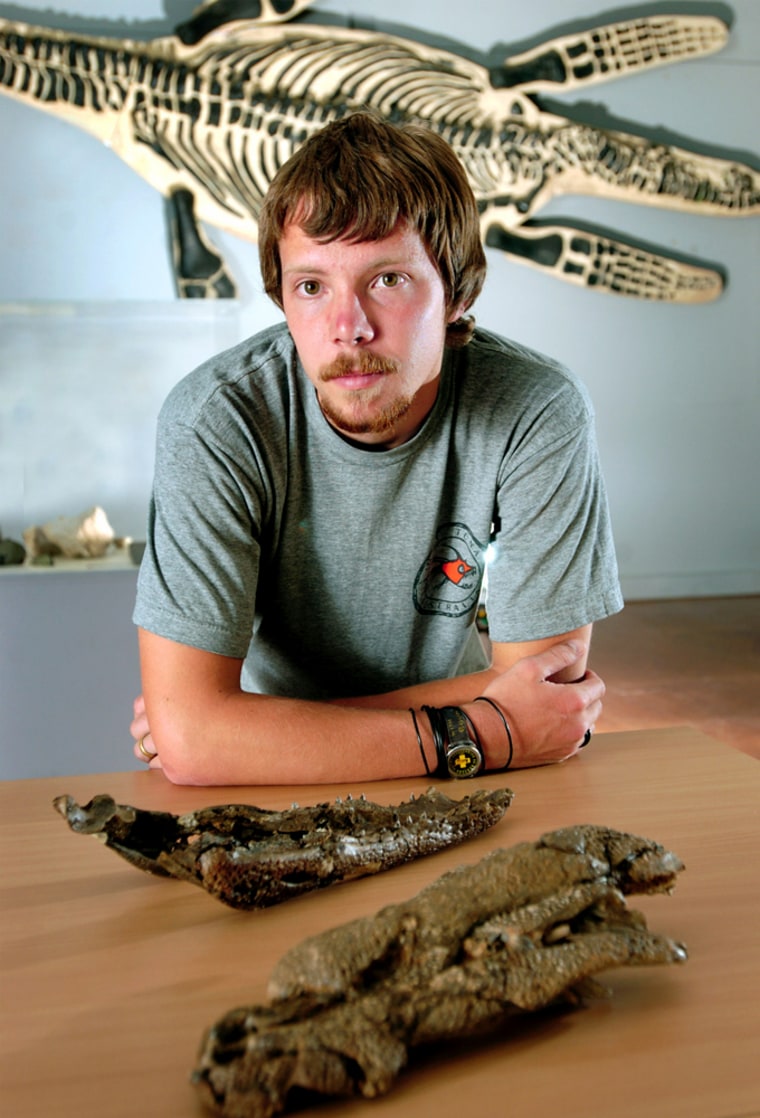A new species of crocodile which lived 40 million years ago has been discovered in tropical Australia, filling a gap in the evolution of the prehistoric-looking crocodile, researchers said on Thursday.
Two nearly complete skulls and a lower jaw of a new species of crocodile that belonged to a group called Mekosuchinae were unearthed by miners in the northern state of Queensland, said Australia's Monash University researcher Lucas Buchanan.
"There is a big gap from about 30 to 60 million years ago of which we have no clue, except for these guys," Buchanan told Reuters on Thursday.
Buchanan said the new species of crocodile was living in the early Tertiary period, from 65 million years ago until five million years ago, during which time climate change possibly had a major impact on the evolution of the modern-day crocodile.
During the period, Australia and Antarctica broke apart and most of eastern Australia became warmer, leading to an increase in rainforests -- an ideal environment for crocodiles.
Buchanan said the new species of crocodile was very similar to the modern-day freshwater crocodile, suggesting the modern crocodile had changed little in millions of years of evolution.
"This croc would have looked much like a modern freshwater crocodile, which is the beautiful thing about crocodiles. They found something that works and stuck with it all through history," he said.
However, the ancient crocodile had sharper and laterally compressed teeth enabling it to sheer prey and an extra jaw muscle to give a stronger, more powerful bite.
Buchanan said researchers were examining more crocodile fossils and hoped to add to the crocodile evolution puzzle.
"It will also help us place this unique Australian group with the bigger picture of where they fit in with other lines of crocodiles," he said.
